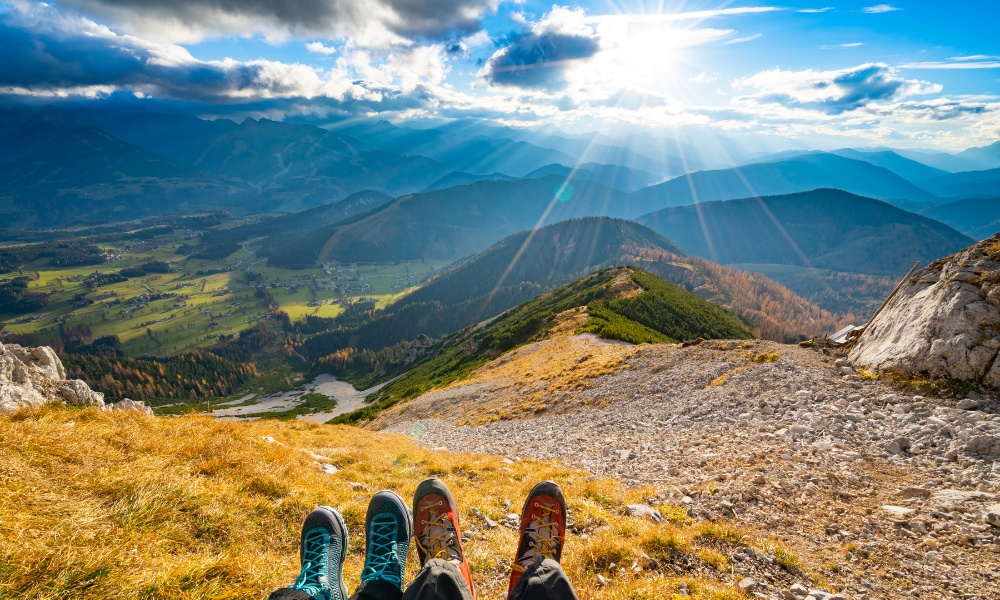Article: Debunked: 5 Myths About Altitude Sickness

Debunked: 5 Myths About Altitude Sickness
Welcome to MTN Ready™'s blog, where we dive into the world of altitude acclimation and empower everyone to feel at home in the mountains. Whether you're a seasoned traveler or first-timer, understanding the essentials of altitude acclimation is key to tackling any adventure—and feeling your best while doing it.
Altitude sickness, also known as acute mountain sickness (AMS), is a common concern for those venturing to mountain towns or high-altitude destinations. Despite its prevalence, there are many misconceptions surrounding altitude sickness that can lead to confusion and unnecessary worry. In this blog post, we aim to debunk five common myths about altitude sickness, providing clarity and empowering travelers to navigate their next mountain trip with confidence.
Myth 1: Altitude Sickness Only Affects Unfit Individuals Reality:
Altitude sickness can affect anyone, regardless of fitness level or age. While physical fitness can contribute to the body's ability to acclimatize to higher elevations, even the most seasoned athletes can experience altitude sickness. Factors such as ascent rate, individual susceptibility, and altitude exposure all play a role in determining one's risk of developing altitude-related symptoms.
Myth 2: Drinking Lots of Water Prevents Altitude Sickness
Reality:
While staying hydrated is important for overall health, simply drinking lots of water does not protect against altitude sickness. Too much water may actually cause loss of important minerals and electrolytes. Water and electrolytes alone cannot fully compensate for the physiological changes that occur at higher elevations, such as reduced oxygen levels in the bloodstream. While hydration is important, to enhance High Altitude Wellness™ it should be supplemented with other altitude acclimatization strategies, such as gradual ascent, proper rest and MTN Ready™ acclimation drink mix.
Myth 3: Altitude Sickness Only Occurs at Extreme Altitudes
Reality:
Altitude sickness can occur at elevations as low as 4,000 feet (1,200 meters) above sea level, although it becomes more common and severe at higher altitudes. Symptoms can manifest within hours of ascent. It's essential to recognize the signs of altitude sickness and take appropriate measures to lessen its impact, regardless of the altitude reached.
Myth 4: Altitude Sickness Is Always Severe
Reality:
While altitude sickness can lead to serious complications if left untreated, it is rarely severe when recognized and managed promptly. Most cases of altitude sickness involve mild to moderate symptoms, such as headaches, nausea, poor sleep and fatigue – which can be alleviated with rest, MTN Ready™ altitude drink mix and the right diet. Severe forms of altitude sickness, such as high-altitude pulmonary edema (HAPE) and high-altitude cerebral edema (HACE), are rare but require immediate medical attention.
Myth 5: Altitude Sickness Only Affects Individuals Who Have Never Experienced It Before
Reality:
While previous exposure to high altitudes can contribute to improved acclimatization in subsequent trips, it does not guarantee immunity to altitude sickness. Individuals who have previously acclimatized successfully may still experience altitude-related symptoms on future ascents, especially if ascent rates are too rapid or if other risk factors are present. That being said, previous bouts of altitude sickness are the best predictor of getting it again. It's essential for all travelers to be vigilant and proactive in preventing altitude sickness, regardless of their past experiences.
Altitude sickness is a complex and multifaceted condition that can affect people of all backgrounds and experience levels. By debunking common myths and understanding the realities of altitude sickness, travelers can better prepare themselves and enjoy safer mountain experiences. Remember, awareness, preparation, and responsible altitude acclimatization are key to mitigating the risks associated with altitude sickness and ensuring a good time.
Here's to High Altitude Wellness™!
The MTN Ready™ Team

